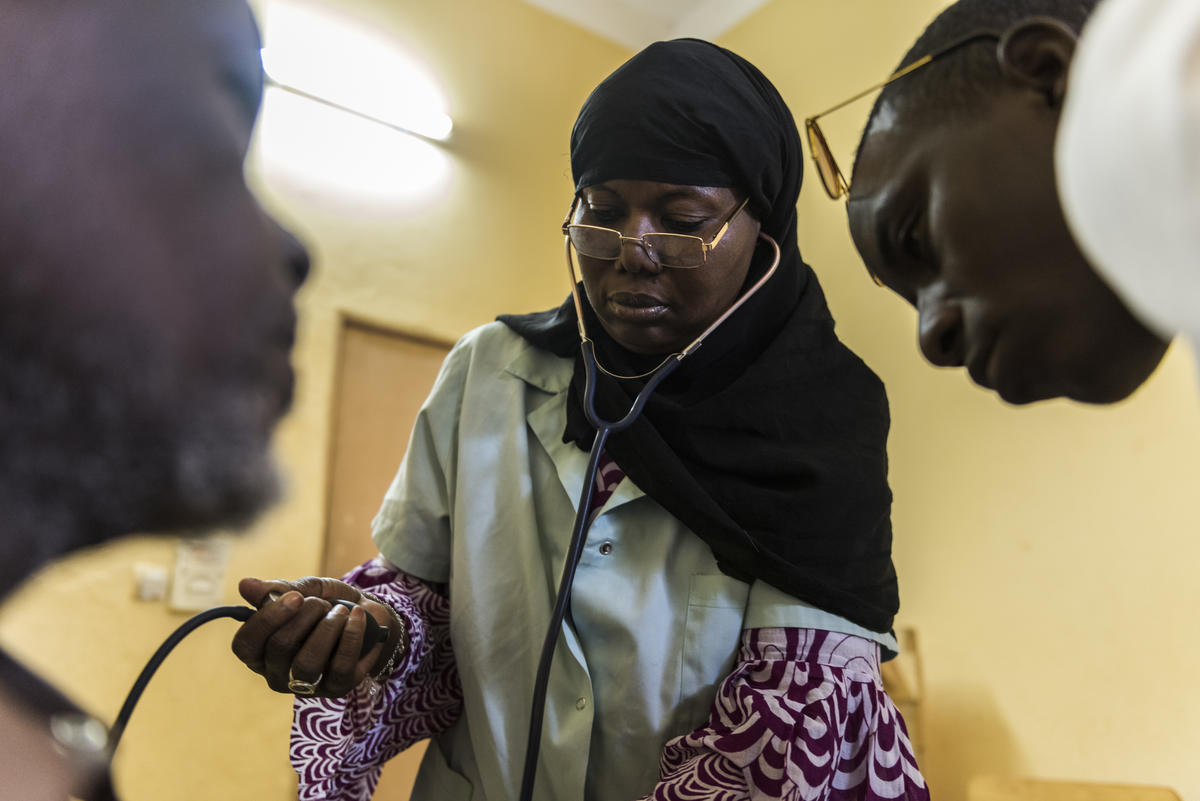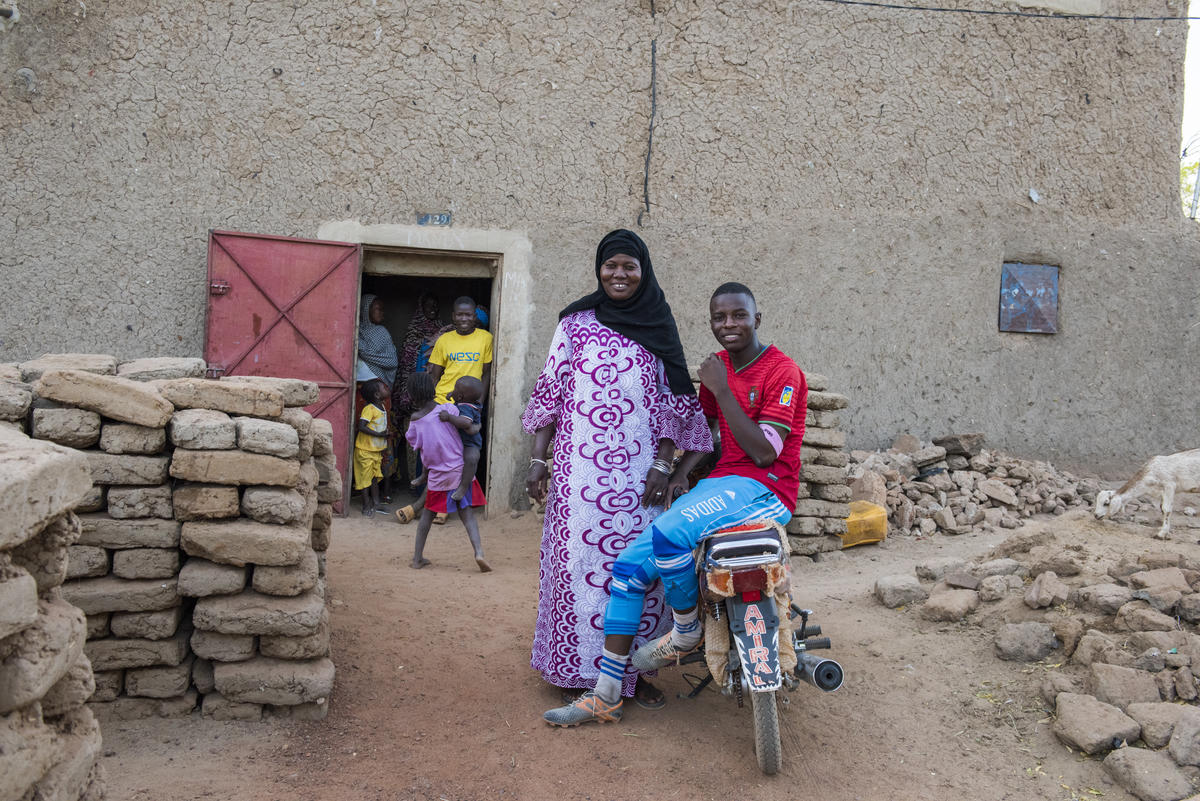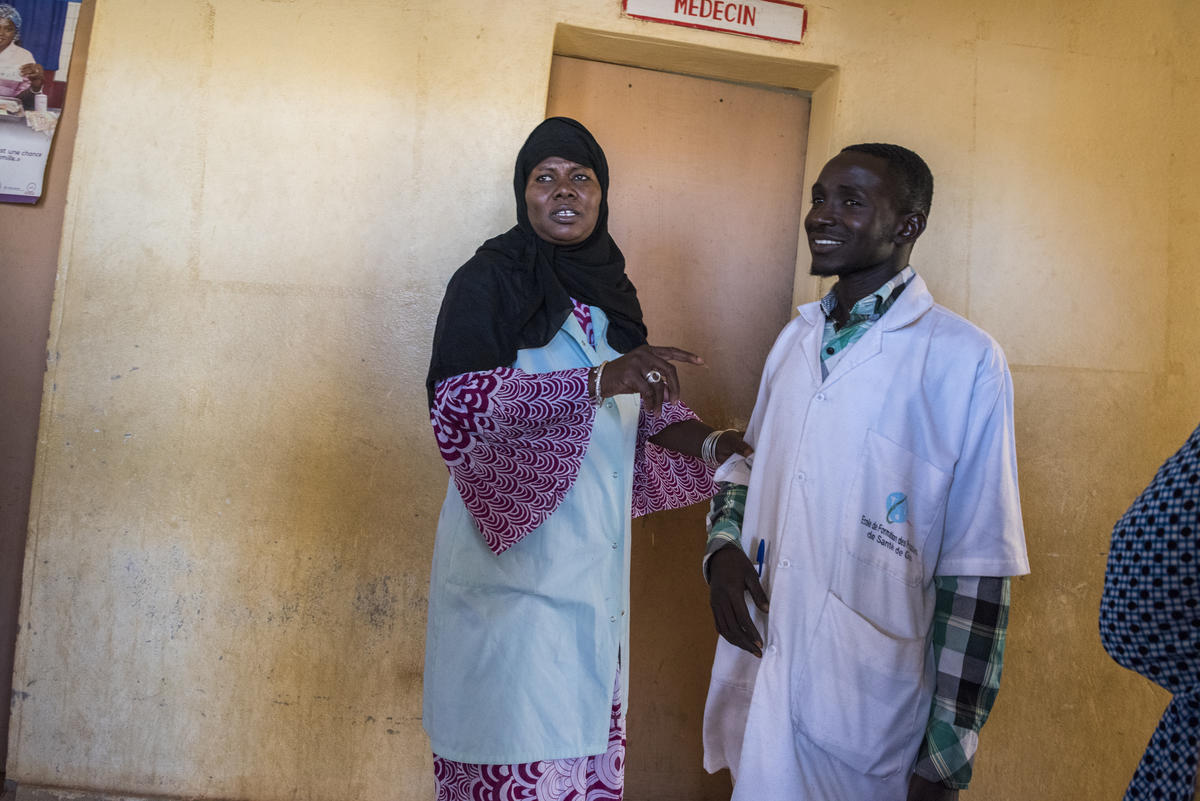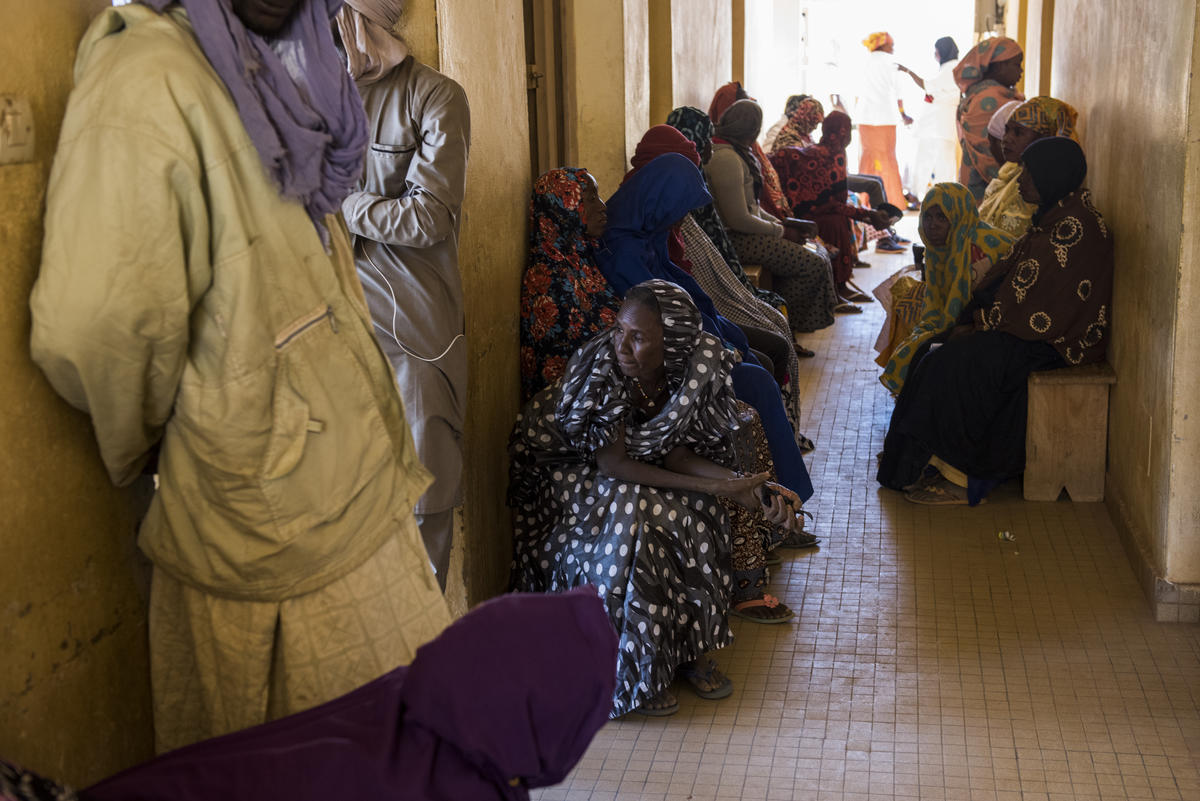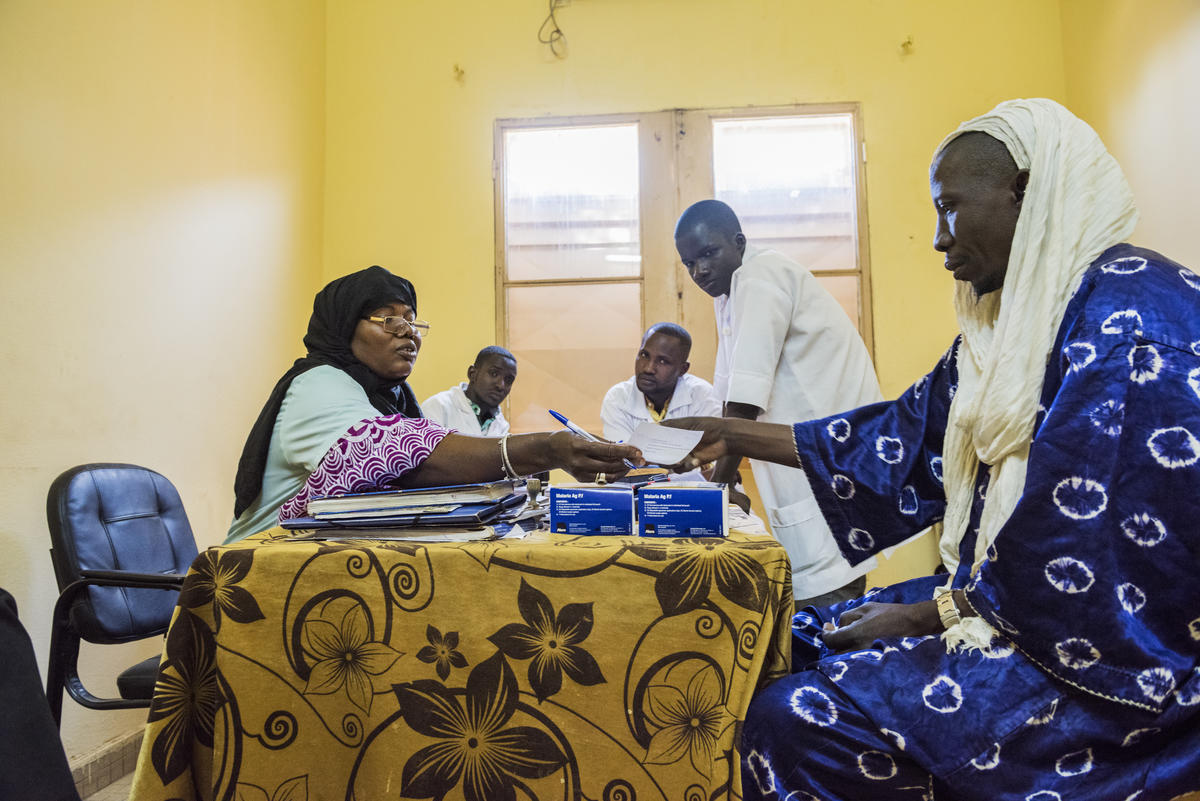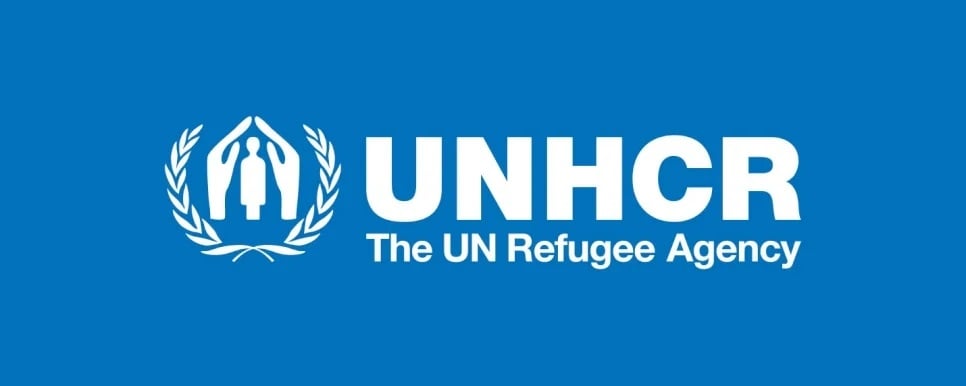Nursing a city back to health in Mali
Jamilla Amadou knew in elementary school that she wanted to be a nurse.
“I was ready to struggle to become one. I already saw myself in a white coat,” she says with a smile.
Today, this formidable woman at 50 is the head nurse in charge of 40 nurses and nurse interns in Gao’s Centre de Santé de Référence. This is a general hospital serving people in the region of almost 550,000 in northern Mali, many of whom have been displaced by conflict.
That, too, was Jamilla’s fate. In 2012, when Gao was overrun by militants, she took her family and ran. Her family was among 80,000 who were forced to flee the city of Gao. Before the attack, Gao had a population of 100,000.
“People were terrified,” she recalls. “We left everything, the city emptied out. We were internally displaced in Mopti (a city also in the conflict zone). There I worked with malnourished children.”
“People were terrified. We left everything, the city emptied out."
The militants were largely pushed out in 2013. Jamilla came back to Gao at the beginning of 2015, only to discover her hospital was a broken shell.
“They smashed everything – the doors, the windows, the equipment ... They even ripped out the curtains.”
With the help of NGOs and UNHCR, the UN Refugee Agency, which paid for the installation of a second water reservoir to assure the patients’ needs, the hospital is now functioning almost normally again.
Her life at the hospital is a round of long days and many patients. Jamilla is technically in charge of a staff of nurses and nurse-trainees, but from 7.30 every morning she is examining patients herself.
In short order she sees a 62-year-old patient with a searing headache and very high blood pressure, and Mohammed, a 33-year-old teacher with kidney problems and severe chest pains. He has travelled 450 kilometers from a town in the north because there is no hospital near him. To get to Gao took him two days and nights.
Jamilla sends Mohammed for more tests on his kidneys. Then more patients. On an average day there are up to 35 with illnesses both brutal and familiar – malaria, typhoid fever, gastroenteritis, diabetes.
She is trailed through the wards by nurse interns and volunteers like 20-year-old Ali Maiga. He wanted to finish his studies to become a nurse like Jamilla but his family ran out of money. Now he works for free, hoping to find enough money some day to achieve his dream.
“I want to help,” he says. “There are children here who have lost their parents. I want to serve the community here.”
Nursing is a vocation. And for Jamilla, caring never stops. At the end of a long day, she speeds home on her motor scooter and starts over again. In the warren of rooms that make up her home she heads a family composed of her mother, her sister, her son and daughter, a nephew, two grandchildren, her 37-year-old brother Abdullah, handicapped since birth – and, depending on the week, between 20 and 30 other women who sleep on mats in two crowded rooms.
"We won’t give up ... This is our region and our city. I will work for it to my last breath.”
They are all internally displaced, forced to abandon their town of Hombori in the centre of the country after militants cut down their tobacco and millet crops. The gunmen denounce tobacco as sinful and return from time to time to terrorize residents and make sure no new crops have been planted.
Aminata, 33, is one of the women. She sleeps in one of the rooms with her five-year-old daughter, also named Aminata. She left three other older children with her parents in the town.
“The armed groups come through from time to time,” she says. “There is no work there. We are all still afraid.”
Jamilla wavers between pessimism and optimism. “There is little future for my children. Now the schools are on strike (teachers say they haven’t been paid). But things have improved here, a bit. I will never say no to the people staying in the house,” she says.
"We won’t give up. But we need help, more outside help. This is our region and our city. I will work for it to my last breath.”



